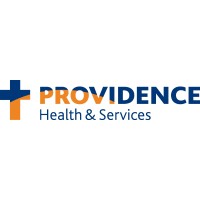
Temple Health – Temple University Health System Company Cyber Security Posture
templehealth.orgAt Temple Health, patients have access to some of the most advanced research and clinical care — tools we are using to help achieve outcomes once thought to be impossible. Our renowned physicians, nurses and researchers are committed to providing tomorrow's treatments, today. Are you ready for an incredible career opportunity? To surround yourself with passion, teamwork and talent? Join Temple Health. Your tomorrow is here. Temple Health consists of Temple University Hospital (TUH-Main Campus), one of the region's most respected academic medical centers, Fox Chase Cancer Center, an NCI-designated comprehensive cancer center; Temple University Hospital-Jeanes Campus, a community-based campus of TUH offering medical, surgical and emergency services, TUH-Episcopal Campus; TUH-Northeastern Campus; Temple Faculty Physicians, a clinical faculty practice plan comprised of more than 500 full-time and part-time academic physicians in 20 clinical departments; Temple Physicians, Inc., a network of community-based specialty and primary-care physician practices; and Temple Transport Team, a ground and air-ambulance company. Temple Health is also proudly affiliated with the Lewis Katz School of Medicine at Temple University.
TH–TUHS Company Details
temple-university-health-system
5071 employees
43004.0
62
Hospitals and Health Care
templehealth.org
517
TEM_1022697
In-progress
Between 900 and 1000
This score is AI-generated and less favored by cyber insurers, who prefer the TPRM score.
 TH–TUHS Global Score
TH–TUHS Global Score.png)

Temple Health – Temple University Health System Company Scoring based on AI Models
| Model Name | Date | Description | Current Score Difference | Score |
|---|---|---|---|---|
| AVERAGE-Industry | 03-12-2025 | This score represents the average cybersecurity rating of companies already scanned within the same industry. It provides a benchmark to compare an individual company's security posture against its industry peers. | N/A | Between 900 and 1000 |
Temple Health – Temple University Health System Company Cyber Security News & History
| Entity | Type | Severity | Impact | Seen | Url ID | Details | View |
|---|---|---|---|---|---|---|---|
| Temple Health | Breach | 100 | 5 | 7/2024 | TEM000073124 | Link | |
Rankiteo Explanation : Attack threatening the organization’s existenceDescription: Temple Health faced significant cybersecurity challenges, primarily in managing third-party risks related to breaches affecting suppliers and partners involved in crucial services such as claims processing and EHR systems. Potential impacts included disruptions to patient care services and compromised healthcare data. Proactive strategies, including advanced network micro-segmentation and auditing of backups, have been put in place to mitigate these risks and ensure continuity of care. Despite these measures, the threat of a severe cyber-attack looms, emphasizing the need for robust and strategic cybersecurity practices to protect sensitive patient information and healthcare operations. | |||||||
| Temple Health | Breach | 100 | 5 | 7/2024 | TEM001032625 | Link | |
Rankiteo Explanation : Attack threatening the organization’s existenceDescription: Temple Health faced significant cybersecurity challenges with a focus on third-party risks. The Philadelphia-based healthcare organization, under scrutiny by CISO Hugo Lai, was grappling with potential breaches from partners like Change Healthcare, EHR vendors like Epic or Cerner, and prescription services like Surescripts. The risk extended to service outages impacting patient care operations, evoking the need for backup plans and a comprehensive security approach, including advanced strategies such as auditing of backups, behavioral monitoring, network micro-segmentation, and SOCs engagement. The consequences of a potential breach could be severe, risking sensitive patient data and critical healthcare services. | |||||||
| Temple Health | Cyber Attack | 100 | 5 | 7/2024 | TEM000080524 | Link | |
Rankiteo Explanation : Attack threatening the organization’s existenceDescription: Temple Health faced a critical situation that involved third-party risks, particularly in the context of cyber attacks on healthcare-supportive entities such as Change Healthcare. Potential breaches could incapacitate essential services like electronic health records, medication dispensing, or claims processing. The impact of such a breach could extend to impediments in patient care services, with prolonged service outages potentially endangering patient health. Temple Health, under the guidance of CISO Hugo Lai, recognized the importance of strategic planning, safeguarding its IT environment against third-party vulnerabilities and implementing advanced cybersecurity strategies such as network micro-segmentation and backup audits to mitigate risks and ensure operational continuity. | |||||||
| Temple Health | Ransomware | 100 | 5 | 7/2024 | TEM001102924 | Link | |
Rankiteo Explanation : Attack threatening the organization’s existenceDescription: Temple Health, a healthcare organization based in Philadelphia, has been facing significant cybersecurity issues, emphasizing the challenges associated with third-party risks. There is a particular concern regarding breaches that may affect downstream or upstream suppliers or partners, which could lead to failures in critical services like claims processing, electronic health record (EHR) systems, and medication dispensation. The organization has been proactive in addressing these vulnerabilities by engaging in advanced cybersecurity strategies such as auditing of backups, behavioral monitoring, and network micro-segmentation. Despite these efforts, the potential for an impactful cyber incident remains, posing a threat to patient care and data security. | |||||||
| Temple Health | Vulnerability | 60 | 3 | 7/2024 | TEM808100224 | Link | |
Rankiteo Explanation : Attack with significant impact with internal employee data leaksDescription: Temple Health faced intense cybersecurity challenges from third-party risks, affecting key healthcare operations. The CISO, Hugo Lai, highlighted issues stemming from breaches at partners such as Change Healthcare, potentially impacting claims processing and EHR system operations. They experienced vulnerabilities related to business continuity due to dependencies on vendor partners. While no specific data leak has been reported, the discussion suggests the need for enhanced security measures including network micro-segmentation and auditing of backups, implying a significant threat to the reliability of patient care services and critical healthcare systems. | |||||||
Temple Health – Temple University Health System Company Subsidiaries

At Temple Health, patients have access to some of the most advanced research and clinical care — tools we are using to help achieve outcomes once thought to be impossible. Our renowned physicians, nurses and researchers are committed to providing tomorrow's treatments, today. Are you ready for an incredible career opportunity? To surround yourself with passion, teamwork and talent? Join Temple Health. Your tomorrow is here. Temple Health consists of Temple University Hospital (TUH-Main Campus), one of the region's most respected academic medical centers, Fox Chase Cancer Center, an NCI-designated comprehensive cancer center; Temple University Hospital-Jeanes Campus, a community-based campus of TUH offering medical, surgical and emergency services, TUH-Episcopal Campus; TUH-Northeastern Campus; Temple Faculty Physicians, a clinical faculty practice plan comprised of more than 500 full-time and part-time academic physicians in 20 clinical departments; Temple Physicians, Inc., a network of community-based specialty and primary-care physician practices; and Temple Transport Team, a ground and air-ambulance company. Temple Health is also proudly affiliated with the Lewis Katz School of Medicine at Temple University.
Access Data Using Our API

Get company history
.png)
TH–TUHS Cyber Security News
Temple conducts free cybersecurity training to underserved communities, develops college students’ career skills
For the past month, Temple University students have been educating North Philadelphia community residents on how to avoid becoming a victim of ...
The life-saving heart surgery few can perform: Meet the Temple surgeon leading the way
A complicated, rare and difficult-to-perform heart surgery first pioneered more than 50 years ago is making a comeback, due to improved techniques that ...
Why Identity Security Still Lags in Healthcare Sector
Identity security is still one of the most underinvested areas of cybersecurity across the healthcare sector, regardless of the depth of cyber resources ...
Judge Orders New Trial in $45M Med Mal Case Against Temple Hospital
A Philadelphia judge threw out a $45 million medical malpractice verdict against Temple University Hospital. The judge ruled that ...
Hospitals line up to sue Blue Cross, opting out of $2.8 bln settlement
Dozens of U.S. hospital systems and other healthcare providers filed lawsuits on Tuesday accusing Blue Cross Blue Shield and affiliates of ...
Medicaid, ACA cuts could devastate hospitals, execs warn
Health systems plan to reduce operating expenses, grow through partnerships and consolidation and diversify revenue as they brace for ...
Premier’s 100 Top Hospitals 2025: Teaching Hospitals
Fortune partnered with Premier on the 2025 ranking of Premier's 100 Top Hospitals in the U.S. The top 40 teaching hospitals are presented ...
Temple University Health System, Inc. Notifies More than 430k Victims of Recent Data Breach
In this notice, Temple University Health explains that the incident resulted in an unauthorized party being able to access consumers' sensitive ...
How is the Philly area impacted by the global IT outage? Here’s what to know
Millions of people worldwide are impacted by an IT outage that has affected airlines, banks and hospitals. Here's what we know so far.

TH–TUHS Similar Companies

UCLA Health Jonsson Comprehensive Cancer Center
The UCLA Jonsson Comprehensive Cancer Center is a leading academic healthcare institution that focuses on preventing, treating and ultimately curing cancer. Our 500 physicians and researchers develop new cancer therapies and advance our understanding of the disease. We do this while remaining patien

CommonSpirit Health
Two legacies of caring. One ministry of change. CommonSpirit Health is a non-profit, Catholic health system dedicated to advancing health for all people. With approximately 175,000 employees and 25,000 physicians and advanced practice clinicians, CommonSpirit operates 140 hospitals and more than 2,2

Fairview Health Services
Fairview Health Services is Minnesota’s choice for healthcare. We’re an industry-leading, award-winning, nonprofit offering a full network of healthcare services. Our broad network is designed to be ready for our patients’ every need, while delivering quality care with compassion. Our care portfoli

Providence Health & Services
At Providence, our strength begins with understanding. We take time to see, hear and value everyone who walks through our doors—patient or caregiver, family support person or volunteer. Working with us means that regardless of your role, we’ll walk alongside you in your career, supporting you so you

Grupo Angeles Servicios de Salud
Hospital Angeles Health System es una empresa 100% mexicana, líder en el sector de la salud privada en México y Latinoamérica, con más de 30 años de experiencia en la atención médica y hospitalaria. Cuenta con 26 Hospitales Angeles en todo el país y un cuerpo médico de más de 15,000 especi

Abbott
Abbott is a global healthcare leader that helps people live more fully at all stages of life. Our portfolio of life-changing technologies spans the spectrum of healthcare, with leading businesses and products in diagnostics, medical devices, nutritional and branded generic medicines. Our 114,000 col

Frequently Asked Questions
Explore insights on cybersecurity incidents, risk posture, and Rankiteo's assessments.
TH–TUHS CyberSecurity History Information
How many cyber incidents has TH–TUHS faced?
Total Incidents: According to Rankiteo, TH–TUHS has faced 5 incidents in the past.
What types of cybersecurity incidents have occurred at TH–TUHS?
Incident Types: The types of cybersecurity incidents that have occurred incidents Breach, Cyber Attack, Ransomware and Vulnerability.
How does TH–TUHS detect and respond to cybersecurity incidents?
Detection and Response: The company detects and responds to cybersecurity incidents through remediation measures with Backup plans, Advanced strategies and network segmentation with Network micro-segmentation and enhanced monitoring with Behavioral monitoring and remediation measures with Auditing of backups, Behavioral monitoring, Network micro-segmentation and remediation measures with Network Micro-Segmentation, Auditing of Backups and network segmentation with Network Micro-Segmentation and network segmentation with Network Micro-Segmentation and remediation measures with Advanced network micro-segmentation, Auditing of backups and network segmentation with Advanced network micro-segmentation.
Incident Details
Can you provide details on each incident?

Incident : Cybersecurity Challenges
Title: Temple Health Cybersecurity Challenges
Description: Temple Health faced significant cybersecurity challenges with a focus on third-party risks. The Philadelphia-based healthcare organization, under scrutiny by CISO Hugo Lai, was grappling with potential breaches from partners like Change Healthcare, EHR vendors like Epic or Cerner, and prescription services like Surescripts. The risk extended to service outages impacting patient care operations, evoking the need for backup plans and a comprehensive security approach, including advanced strategies such as auditing of backups, behavioral monitoring, network micro-segmentation, and SOCs engagement. The consequences of a potential breach could be severe, risking sensitive patient data and critical healthcare services.
Type: Cybersecurity Challenges
Attack Vector: Third-party risks, Service outages

Incident : Cybersecurity Challenges
Title: Temple Health Cybersecurity Challenges
Description: Temple Health, a healthcare organization based in Philadelphia, has been facing significant cybersecurity issues, emphasizing the challenges associated with third-party risks. There is a particular concern regarding breaches that may affect downstream or upstream suppliers or partners, which could lead to failures in critical services like claims processing, electronic health record (EHR) systems, and medication dispensation. The organization has been proactive in addressing these vulnerabilities by engaging in advanced cybersecurity strategies such as auditing of backups, behavioral monitoring, and network micro-segmentation. Despite these efforts, the potential for an impactful cyber incident remains, posing a threat to patient care and data security.
Type: Cybersecurity Challenges
Attack Vector: Third-party risks, Supplier and partner breaches

Incident : Third-Party Risk
Title: Temple Health Cybersecurity Challenges from Third-Party Risks
Description: Temple Health faced intense cybersecurity challenges from third-party risks, affecting key healthcare operations. The CISO, Hugo Lai, highlighted issues stemming from breaches at partners such as Change Healthcare, potentially impacting claims processing and EHR system operations. They experienced vulnerabilities related to business continuity due to dependencies on vendor partners. While no specific data leak has been reported, the discussion suggests the need for enhanced security measures including network micro-segmentation and auditing of backups, implying a significant threat to the reliability of patient care services and critical healthcare systems.
Type: Third-Party Risk
Attack Vector: Vendor Partner Breaches
Vulnerability Exploited: Business Continuity Dependencies

Incident : Cyber Attack
Title: Potential Cyber Attack on Temple Health
Description: Temple Health faced potential cyber risks from third-party entities such as Change Healthcare, which could impact essential services like electronic health records, medication dispensing, or claims processing. The impact could extend to impediments in patient care services, with prolonged service outages potentially endangering patient health.
Type: Cyber Attack
Attack Vector: Third-Party Risks
Vulnerability Exploited: Third-Party Vulnerabilities

Incident : Cybersecurity Challenges
Title: Cybersecurity Challenges at Temple Health
Description: Temple Health faced significant cybersecurity challenges, primarily in managing third-party risks related to breaches affecting suppliers and partners involved in crucial services such as claims processing and EHR systems. Potential impacts included disruptions to patient care services and compromised healthcare data. Proactive strategies, including advanced network micro-segmentation and auditing of backups, have been put in place to mitigate these risks and ensure continuity of care. Despite these measures, the threat of a severe cyber-attack looms, emphasizing the need for robust and strategic cybersecurity practices to protect sensitive patient information and healthcare operations.
Type: Cybersecurity Challenges
What are the most common types of attacks the company has faced?
Common Attack Types: The most common types of attacks the company has faced is Breach.
Impact of the Incidents
What was the impact of each incident?

Incident : Cybersecurity Challenges TEM001032625
Data Compromised: Sensitive patient data
Systems Affected: Healthcare services
Operational Impact: Patient care operations

Incident : Cybersecurity Challenges TEM001102924
Systems Affected: Claims processing, Electronic health record (EHR) systems, Medication dispensation

Incident : Third-Party Risk TEM808100224
Systems Affected: Claims Processing, EHR Systems
Operational Impact: Significant threat to the reliability of patient care services and critical healthcare systems

Incident : Cyber Attack TEM000080524
Systems Affected: Electronic Health Records, Medication Dispensing, Claims Processing
Operational Impact: Patient Care Services

Incident : Cybersecurity Challenges TEM000073124
Systems Affected: Claims Processing Systems, EHR Systems
Operational Impact: Disruptions to patient care services
What types of data are most commonly compromised in incidents?
Commonly Compromised Data Types: The types of data most commonly compromised in incidents are Sensitive patient data.
Which entities were affected by each incident?

Incident : Cybersecurity Challenges TEM001032625
Entity Type: Healthcare organization
Industry: Healthcare
Location: Philadelphia

Incident : Cybersecurity Challenges TEM001102924
Entity Type: Healthcare Organization
Industry: Healthcare
Location: Philadelphia
Response to the Incidents
What measures were taken in response to each incident?

Incident : Cybersecurity Challenges TEM001032625
Remediation Measures: Backup plans, Advanced strategies
Network Segmentation: Network micro-segmentation
Enhanced Monitoring: Behavioral monitoring

Incident : Cybersecurity Challenges TEM001102924
Remediation Measures: Auditing of backups, Behavioral monitoring, Network micro-segmentation

Incident : Third-Party Risk TEM808100224
Remediation Measures: Network Micro-Segmentation, Auditing of Backups
Network Segmentation: Network Micro-Segmentation

Incident : Cyber Attack TEM000080524
Network Segmentation: ['Network Micro-Segmentation']

Incident : Cybersecurity Challenges TEM000073124
Remediation Measures: Advanced network micro-segmentation, Auditing of backups
Network Segmentation: Advanced network micro-segmentation
Data Breach Information
What type of data was compromised in each breach?

Incident : Cybersecurity Challenges TEM001032625
Type of Data Compromised: Sensitive patient data
What measures does the company take to prevent data exfiltration?
Prevention of Data Exfiltration: The company takes the following measures to prevent data exfiltration: Backup plans, Advanced strategies, Auditing of backups, Behavioral monitoring, Network micro-segmentation, Network Micro-Segmentation, Auditing of Backups, Advanced network micro-segmentation, Auditing of backups.
Lessons Learned and Recommendations
What lessons were learned from each incident?

Incident : Third-Party Risk TEM808100224
Lessons Learned: Enhanced security measures including network micro-segmentation and auditing of backups are necessary.

Incident : Cyber Attack TEM000080524
Lessons Learned: Recognized the importance of strategic planning, safeguarding its IT environment against third-party vulnerabilities and implementing advanced cybersecurity strategies such as network micro-segmentation and backup audits to mitigate risks and ensure operational continuity.
What recommendations were made to prevent future incidents?

Incident : Cybersecurity Challenges TEM000073124
Recommendations: Implement robust and strategic cybersecurity practices to protect sensitive patient information and healthcare operations
What are the key lessons learned from past incidents?
Key Lessons Learned: The key lessons learned from past incidents are Enhanced security measures including network micro-segmentation and auditing of backups are necessary.Recognized the importance of strategic planning, safeguarding its IT environment against third-party vulnerabilities and implementing advanced cybersecurity strategies such as network micro-segmentation and backup audits to mitigate risks and ensure operational continuity.
What recommendations has the company implemented to improve cybersecurity?
Implemented Recommendations: The company has implemented the following recommendations to improve cybersecurity: Implement robust and strategic cybersecurity practices to protect sensitive patient information and healthcare operations.
Post-Incident Analysis
What were the root causes and corrective actions taken for each incident?

Incident : Third-Party Risk TEM808100224
Root Causes: Vulnerabilities related to business continuity due to dependencies on vendor partners
Corrective Actions: Network Micro-Segmentation, Auditing of Backups
What is the company's process for conducting post-incident analysis?
Post-Incident Analysis Process: The company's process for conducting post-incident analysis is described as Behavioral monitoring.
What corrective actions has the company taken based on post-incident analysis?
Corrective Actions Taken: The company has taken the following corrective actions based on post-incident analysis: Network Micro-Segmentation, Auditing of Backups.
Additional Questions
Impact of the Incidents
What was the most significant data compromised in an incident?
Most Significant Data Compromised: The most significant data compromised in an incident was Sensitive patient data.
What was the most significant system affected in an incident?
Most Significant System Affected: The most significant system affected in an incident were Healthcare services and Claims processing, Electronic health record (EHR) systems, Medication dispensation and Claims Processing, EHR Systems and Electronic Health Records, Medication Dispensing, Claims Processing and Claims Processing Systems, EHR Systems.
Data Breach Information
What was the most sensitive data compromised in a breach?
Most Sensitive Data Compromised: The most sensitive data compromised in a breach was Sensitive patient data.
Lessons Learned and Recommendations
What was the most significant lesson learned from past incidents?
Most Significant Lesson Learned: The most significant lesson learned from past incidents was Enhanced security measures including network micro-segmentation and auditing of backups are necessary., Recognized the importance of strategic planning, safeguarding its IT environment against third-party vulnerabilities and implementing advanced cybersecurity strategies such as network micro-segmentation and backup audits to mitigate risks and ensure operational continuity.
What was the most significant recommendation implemented to improve cybersecurity?
Most Significant Recommendation Implemented: The most significant recommendation implemented to improve cybersecurity was Implement robust and strategic cybersecurity practices to protect sensitive patient information and healthcare operations.
What Do We Measure?
















Every week, Rankiteo analyzes billions of signals to give organizations a sharper, faster view of emerging risks. With deeper, more actionable intelligence at their fingertips, security teams can outpace threat actors, respond instantly to Zero-Day attacks, and dramatically shrink their risk exposure window.
These are some of the factors we use to calculate the overall score:
Identify exposed access points, detect misconfigured SSL certificates, and uncover vulnerabilities across the network infrastructure.
Gain visibility into the software components used within an organization to detect vulnerabilities, manage risk, and ensure supply chain security.
Monitor and manage all IT assets and their configurations to ensure accurate, real-time visibility across the company's technology environment.
Leverage real-time insights on active threats, malware campaigns, and emerging vulnerabilities to proactively defend against evolving cyberattacks.




